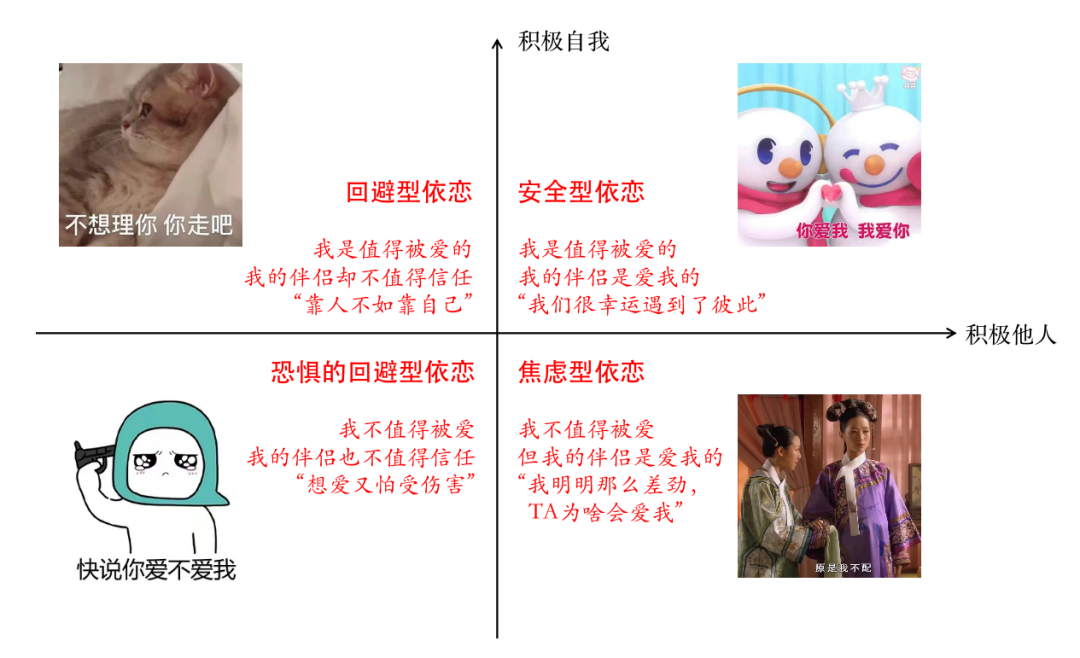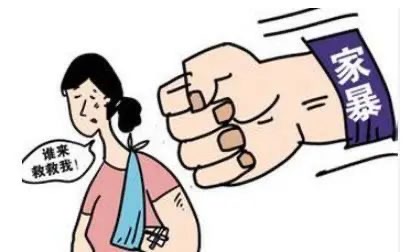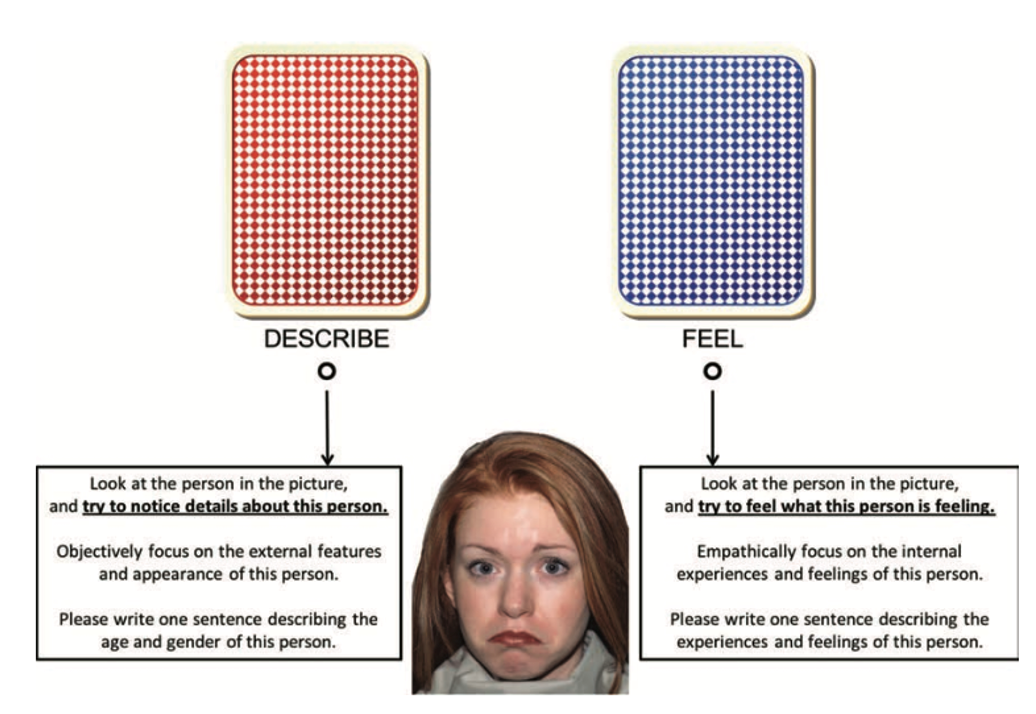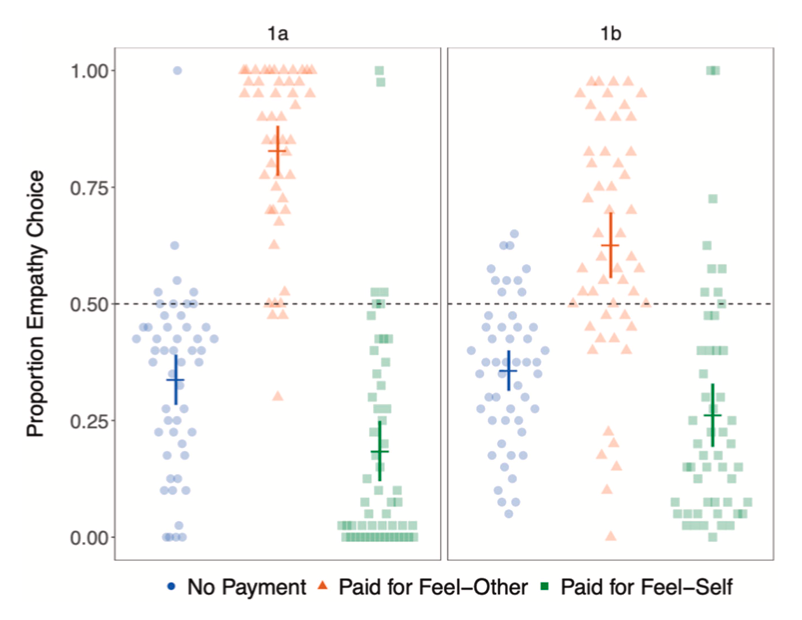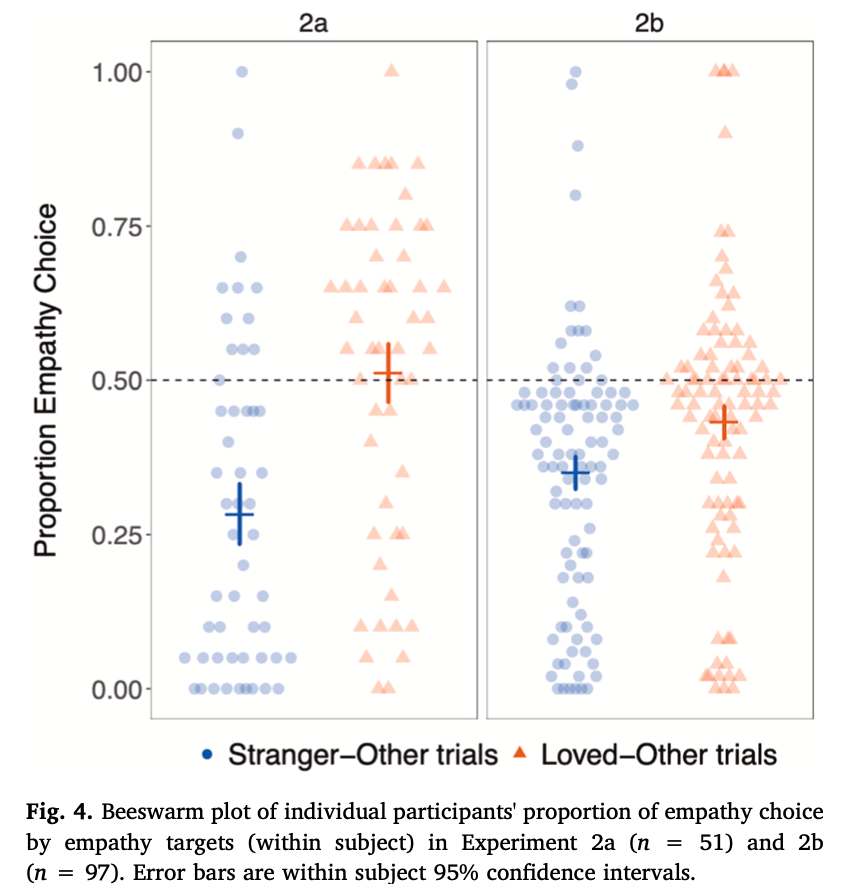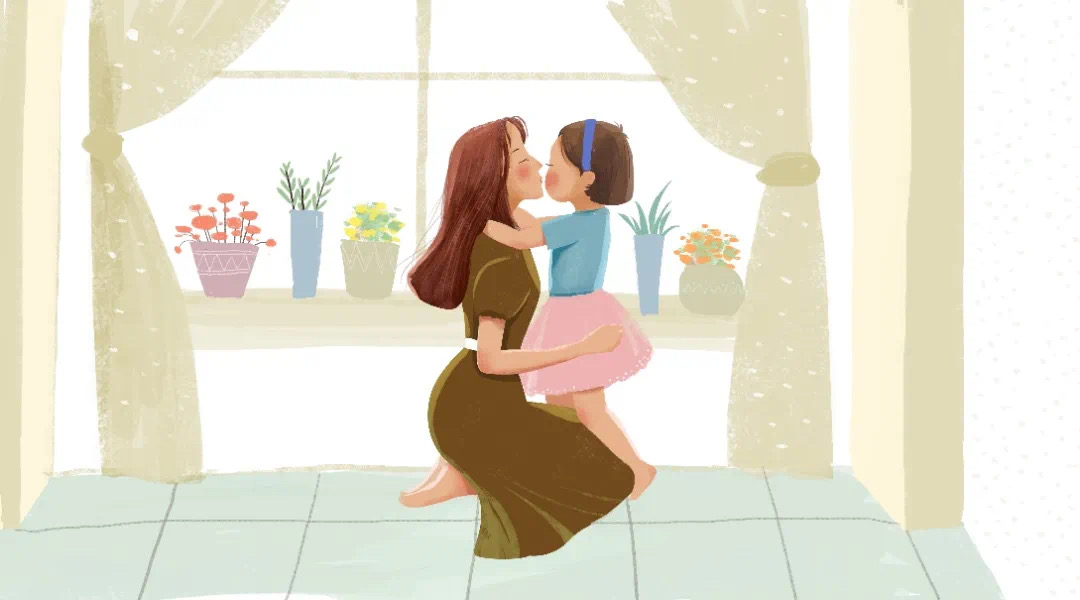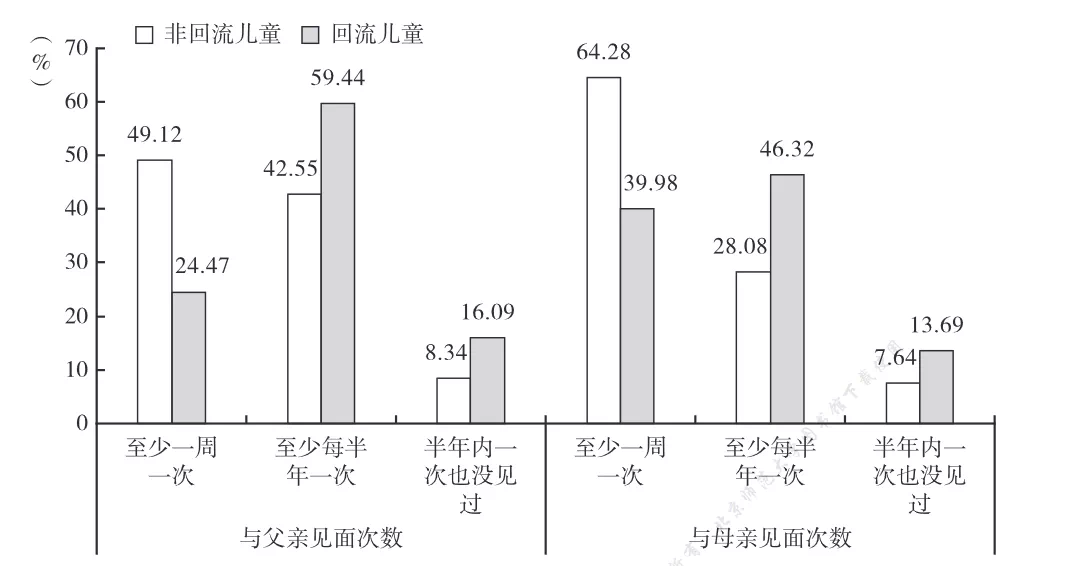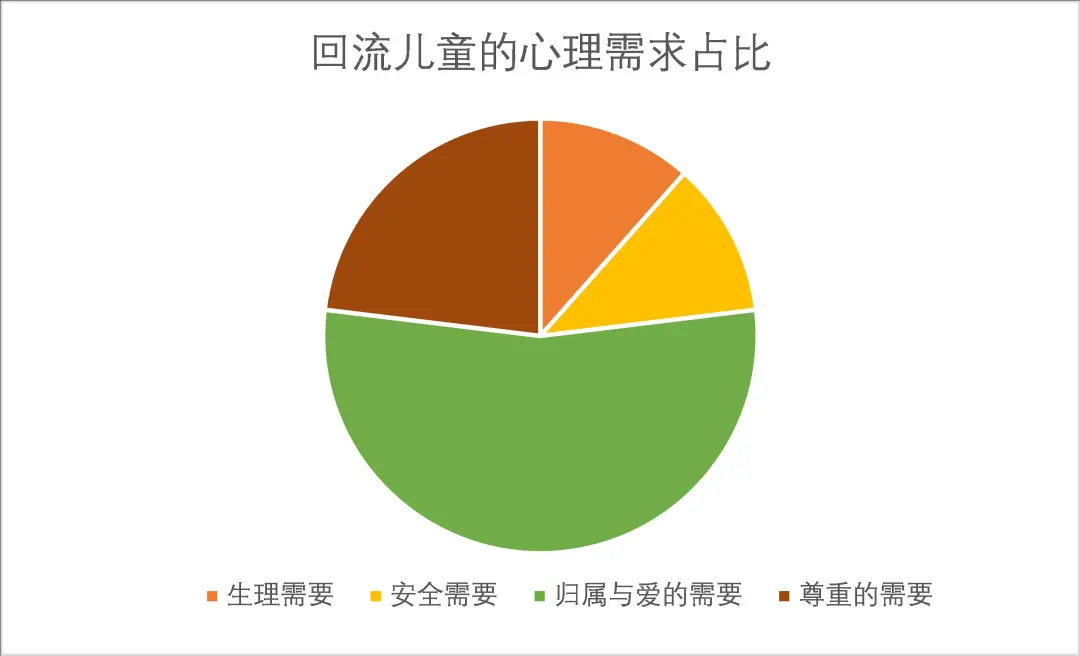母亲对女儿的嫉妒
Do you have a strained relationship with your mother and don't know why?
你们是否关系紧张但你却不知道为何?
Is your mother competitive with you, treating you more like a rival than a daughter?
你的母亲是否与你竞争,与其说将你当作女儿,不如说更像是将你当作对手?
Is she uninterested in your life, rarely inquiring about your career, your activities, and your kids?
她对你的生活是否并不感兴趣,很少询问你的工作,活动和孩子?
Is she possessive of your dad, making it almost impossible for you and him to spend time alone together?
她对你的父亲是否占有欲很强,让你几乎无法和父亲两人独处?
Do you get a strong sense that she wants you to do well in life... but not too well?
你是否强烈感觉到她想让你过得好,但又不想让你过得太好?
If this dynamic sounds all too familiar, your mom may be jealous of you. As a child, because you didn't understand why the relationship was tense, you were left in the dark: bewildered, unsupported, and emotionally abandoned. Today, though, you can finally acknowledge your mom's envy and accept her limitations. You can stop blaming yourself for the tension between the two of you and find peace.
如果上面这些互动模式对你而言很熟悉,那么你的母亲可能就是在嫉妒你。在你还是小孩子时,因为你并不理解你们之间关系为何如此紧张,因此你迷茫无措:困惑、无人支持、在情感上被抛弃。但今天,你终于可以承认你母亲的嫉妒感,接受她的不足之处。终于你可以不再将你们之间的紧张关系归咎于你自己,终于可以找到安宁。
5 Reasons Why a Mom Gets Jealous of Her Daughter
母亲嫉妒女儿的5个原因
01
She's a Narcissist
她是一位自恋者
While there are normal, natural reasons why moms sometimes get jealous of their daughters, narcissism is not one of them. Dr. Karyl McBride writes about self-centered women and the damage they inflict in Will I Ever Be Good Enough?: Healing the Daughters of Narcissistic Mothers.
Dr. McBride says that daughters of jealous, narcissistic mothers may battle crippling self-doubt in adulthood. When they were kids, their moms treated them like accessories and not full-fledged individuals. As a result, their feelings, worries, and struggles went unnoticed and unattended. They grew up in an environment where they were to reflect well on their mom but never outshine her. In the process, they suppressed their own needs and desires in favor of hers.
关于母亲嫉妒女儿,的确存在一些正常、自然的原因,但自恋却并非其中一种。Karyl McBride 博士在其著作《我究竟何时才能足够优秀:自恋母亲的女儿们的疗愈》中,提到了自我中心的女性和她们所造成的伤害。McBride 博士说,对于充斥着嫉妒心和自恋的母亲们而言,她们的女儿可能会在成年之后严重受到负面自我质疑的困扰。当她们在儿童时期,她们的母亲对待她们就像是对待附属品,而非完整独立个体。因此,她们的感受、担忧和挣扎并不会被注意到,也不会被应对。在她们成长环境中,她们必须给自己的母亲挣面子,但又绝对不许超过母亲的光芒。在这一过程中,她们只能为满足母亲的需求和愿望而压抑自身需求与愿望。
This is why it’s vital that they focus on themselves today by embracing their inner world: their thoughts, emotions, and dreams. Writing in a journal daily is a valuable way to accomplish this. It gives these women an opportunity to get in touch with themselves and, finally, figure out who they are and what they want from life.
这也是为什么当今至关重要的,是她们将注意力集中于自身,方法是接纳自己的内心世界:自己的想法、情绪和梦想等。每天记日记是实现这一点的有效方式。这会给她们与自己内心重建联系的机会,从而最终明白自己是谁,自己在人生中究竟想要追求什么。
Normal or healthier mothers are proud of their children and want them to shine. But a narcissistic mother may perceive her daughter as a threat. If attention is drawn away from the mother, the child suffers retaliation, put-downs, and punishments. The mother can be jealous of her daughter for many reasons: her looks, her youth, material possessions, accomplishments, education and even the young girl’s relationship with the father.
正常或较健康的母亲会为自己的孩子感到自豪,想要他们闪耀。但一位自恋型母亲可能会将孩子视为威胁。如果对母亲的关注被转移走,她的孩子就会遭受报复、贬低和惩罚。这类母亲可能会出于多种不同原因嫉妒自己的孩子:外貌、青春、物质财富、成就、教育,甚至是女儿和其父亲之间的关系。
—Karyl McBride, author of "Will I Ever Be Good Enough?"
02
She's in Menopause
她正处于更年期
While jealousy from a narcissistic mother is extreme and destructive, envy from a menopausal mom is quite normal. It’s difficult for some middle-aged women to undergo the change of life just as their daughters bloom into adulthood. It’s understandable that they may covet a daughter’s youth, vigor, and infinite prospects during this time.
来自自恋型母亲的嫉妒往往是极端且具有摧毁性的,但来自更年期母亲的嫉妒则非常正常。一些中年女性在自己女儿如花绽放般进入成年期的时期,自身却开始经历更年期这一人生变化,这对她们来说是很难的。而且也可以理解她们可能会在这段时期觊觎女儿的年轻、活力和未来的无限可能。
During menopause, a mom may feel less womanly, less desirable, and less relevant in our youth-obsessed society. She may endure physical changes such as weight gain, dry skin, thinning hair, and coarsening facial hair. She may witness her daughter attracting men's attention when she no longer does. As a result, she can feel more anxious and less confident.
在更年期,一位母亲可能会感到自己不再那么有女人味,不再那么有魅力,有些与当今对青春执迷追求的社会脱节。她可能也正在遭受一些身体上的变化,比如体重增加,皮肤干燥、头发脱落和面部汗毛明显等。她可能会看到自己的女儿会吸引男性目光而自己却再也不能。因此,她可能会感到更焦虑,更不自信。
The daughter of a jealous menopausal mom should be patient and compassionate. According to the American College of Obstetricians and Gynecologists, hormonal changes during this stage can make a woman irritable and depressed. A daughter, therefore, may need to turn to an aunt, a grandmother, or friends for support during this time when her mother is struggling and emotionally unavailable to her.
如果母亲因处于更年期而感到嫉妒,那么女儿应该有耐心和同情心。按照美国妇产科医师协会观点,这一阶段的荷尔蒙变化会让女性变得易怒和抑郁。因此,对一位女儿来说,如果她的母亲在这段时期挣扎于这些症状中,而且情感上缺位,那么她应该变为一位阿姨、祖母或朋友的角色,为母亲提供支持和帮助。
03
She's Possessive of Her Husband (Your Dad)
她对自己丈夫(你父亲)占有欲过强
One of the most destructive things that jealous moms do comes between their daughters and their dads. According to psychologist Dr. Nikki Martinez, this is caused by a mom’s low self-esteem. Her insecurity leads her to become territorial about her husband. She doesn’t want to share him with anyone, even his own flesh and blood.
嫉妒型母亲最具摧毁性的影响之一,是会破坏女儿与父亲之间关系。按照心理学家 Nikki Martinez所说,这源于这位母亲自身的低自尊感。她的不安全感导致她对自己丈夫产生“捍卫领地”的意识。她不想和任何人分享他,即使是她自己的亲生骨肉。
When her mom is envious and her father is weak, a daughter can potentially lose both her parents. To avoid conflict, a feeble husband may surrender to his wife’s insecurities. He might do anything to keep the peace, even forsaking his own child. Consciously or unconsciously, he neglects his fatherly duties and pushes his daughter to the side. Tragically, she’s left without a healthy, loving connection to either parent and grows up feeling like an interloper in her own family.
当母亲充满嫉妒,而父亲又很软弱时,女儿就有可能失去他们二者。为避免冲突,一位软弱的丈夫可能会屈从于妻子的不安全感。他可能会想方设法维系平静,甚至包括抛弃自己的孩子。有意识或无意识地,他会疏忽自己的父亲职责,将女儿推向一边。孩子就很悲惨地无法与任何一方父母建立充满爱意的连接,而且在长大过程中感觉自己像是自己家庭的侵入者。
Not appreciating that her mom’s jealousy is the reason for the distant relationship with her dad, the daughter blames herself. She becomes convinced that she’s unlovable. As an adult, she may still feel sad and confused about her childhood and her relationship with her parents. Working with a good therapist can help her understand her mother’s envy and the role it played in keeping her and her father apart.
如果不理解母亲的嫉妒心才是自己和父亲关系疏远的原因,那么这位女儿可能就会自责。她会坚信自己不值得被爱。成年之后,她可能会对自己的同年和与父母的关系依旧感到悲伤和困惑。向一位称职的心理咨询师寻求帮助,可以帮助她理解自己母亲的嫉妒心,以及这种嫉妒对她和父亲之间疏远的父女关系所产生的影响。
04
She Regrets Her Unfulfilled Dreams
她为自己未实现的梦想感到遗憾
Another common source of a mom’s envy is her daughter’s seemingly unlimited prospects. At a time when her own possibilities may be narrowing, she sees her child’s world open up. She may wish that she had enjoyed the freedoms that young women have today: exploring their sexuality, postponing motherhood, entering once male-dominated professions, buying their own homes, and being financially independent. As such, she may be resentful of her daughter and regretful of her own life choices.
导致一位母亲嫉妒的另一种常见原因是,她的女儿似乎有着无限美好前景。恰恰在这段自己的人生机会不断变窄的时期,却看到自己女儿的世界不断开阔。她可能会希望自己也曾享有当今时代女性们所拥有的种种自由:在性活动方面的探索,推迟生育,进入曾由男性主导的职业,自己买属于自己的房子,经济独立等。因此,她可能就会对女儿产生怨恨感或对自己人生选择产生遗憾感。
Dr. Charles Sophy, a family and child psychiatrist, says that some moms even perceive their daughters as thieves who steal their sexuality. He has dubbed this phenomenon Perceived Transfer of Sexuality (PTS). A mother feels threatened as her daughter’s sexuality peaks and hers declines. To her, it seems like she’s now in fierce competition with her own offspring. Her daughter, meanwhile, is left flummoxed by the escalating conflicts with her mom, wondering what they’re about and hoping to de-escalate them.
家庭和儿童精神医师 Charles Sophy 博士说,一些母亲甚至把自己女儿视为偷走自己性魅力的小偷。他将这种现象称为“主观认为的性魅力转移”(PTS)。当女儿的性魅力处于巅峰时期而自己却逐渐走下坡路,一位母亲可能就会感到受到威胁。对她而言,似乎自己在与自己的后代开展了激烈竞争。而她的女儿却对这种与母亲之间不断升级的冲突看到困惑不解,想要知道这些冲突究竟是为什么,并希望缓解这些冲突。
05
She's Emotionally Absent
情感缺位
Occasionally, daughters experience maternal jealousy because their moms are numb and detached. According to Jasmin Lee Cori, author of The Emotionally Absent Mother, many of these mothers were severely under-mothered when they were children. As a result, they grew up to be desensitized adults who can’t connect with their kids emotionally. When their daughters are in the spotlight, these moms don’t feel pride and joy like most parents do. Instead, they feel sad and resentful because they didn’t have the same opportunities to shine when they were kids.
偶尔有时候,女儿被母亲嫉妒,是因为母亲本性冷漠且疏远。据《情感缺席的母亲》作者 Jasmin Lee Cori所说,这类母亲中,很多在童年时期并没有得到足够母爱,因此,她们成年之后成为冷漠的、无法与孩子建立情感连接的成年人。当她们的女儿在聚光灯下时,这些母亲并不像大多数母亲一样感到自豪和开心,而是由于自己童年时并没有同样的闪耀机会而感到悲伤和怨恨。
When a daughter figures out that her mom is emotionally absent, it’s both a revelation and a relief. She now knows the cause of her mother’s envy and no longer blames herself. If she starts practicing acceptance, realizing her mom won’t change, she can look elsewhere to build emotionally satisfying relationships and a strong support system. To learn more, read How an Emotionally Absent Mother Impacts Her Daughter's Life.
当女儿明白是自己的母亲情感缺位,这不仅是一种启示,也是一种解脱。她现在不仅知道了母亲嫉妒心的来源,也不会再责怪自己。如果她开始认可接受现实,认识到自己母亲不会改变,她就会将目光移向别处,为自己构建从情感上令自己满意的感情关系和牢固的支持系统。
想要了解更多,阅读《一位情感缺席的母亲如何影响女儿的人生》
https://wehavekids.com/parenting/Emotionally-Absent-Mothers-Leaving-a-Legacy-of-Shame-and-Isolation-for-Her-Daughter
Debunking the Maternal Archetype
打破“母亲”人格原型之执念
The "maternal archetype" is a woman who's always sacrificing, supporting, loving, and doing for her children. In reality, though, our moms are human, with all the faults, frailties, and confused feelings that come with that mortal state.
所谓的“母亲”人格原型,是指一个总是为孩子牺牲自我、支持孩子、爱孩子和为孩子付出的女性。但在现实中,我们的母亲是人,也有着作为人来说所具有的缺陷、脆弱和纷乱复杂的感受等。
Questions & Answers
问与答
Question:
Why do these mothers hate their daughters and not their sons?
这些母亲为什么恨自己的女儿而非儿子?
Answer:
It's not a matter of mothers hating their daughters but having a jealousy and rivalry with them. Moms don't feel the same competitiveness with their sons because they don't identify with them as strongly. It's perfectly normal that mothers feel twinges of envy from time to time as it's a basic human emotion. This is especially true when their daughters enjoy experiences in life they didn't: career opportunities, financial successes, travel to exotic places, etc. Fathers, by the way, didn’t respond that way to either high-achieving sons or daughters.
这些并非母亲恨自己的女儿,而是嫉妒女儿,敌视女儿。这些母亲之所以对她们的儿子们没有这种竞争感,是因为她们并没有和儿子之间有同样强烈的身份认同感。母亲有时感到嫉妒,这非常正常,因为这是一种基本的人类情绪。尤其是当女儿可以享有她们未曾享有的人生体验,比如职业机会,经济成功和异国旅行时,这种情绪更是正常。顺带提一下,父亲们对获得很高成就的女儿或儿子则并不会如此反应。
Emotionally unhealthy moms, however, feel more than twinges of jealousy. My mother, for instance, felt intense rivalry with my sister and me because she was incredibly insecure. She needed us to make decisions similar to hers in order to validate her life. Not surprisingly, we went to extremes to copy our mother's path so we'd win her love and approval. Sadly, we both became teachers like her even though neither one of us was suited to that profession. My sister got married at the same age as our mom (22), had the same number of children (3), and sent them to the same Catholic schools where our mom sent us. Even though my sister went above and beyond to get my mom's stamp of approval, she never did as my mother alternated between being envious of her and highly critical of her.
但情绪不健康的母亲却不只是感到阵阵嫉妒。比如说我的母亲,对我姐姐和我极其仇视,因为她极其具有不安全感。她需要我们做与她决策类似的决策,从而肯定她的人生。不出意料,我们都以极端的方式复制了母亲的人生道路,目的就是为了获得她的爱和认可。但不幸的是,我们都像她一样成为了老师,虽然我们两人都不适合这一职业。姐姐也像母亲一样在22岁结了婚,也有了同样数量的小孩(3个),而且也像当年母亲对我们一样,也把她的孩子送到了天主教学校。即使我的姐姐为了获得母亲认可而做出超常努力,但却从未成功,我们的母亲一直都是在嫉妒她和严厉批判她两种态度之间不断切换。
When moms get jealous of their daughters, it's best for their daughters to distance themselves. I moved away from my mom (both physically and emotionally) after having my own kids. She had been jealous of the attention I showed them and I felt caught in the middle. When I thought about it, though, I knew it was time for me to grow up, choose my husband and sons, and start a healthy life away from mom. It was the best decision I ever made and contributed greatly to a strong marriage and happy family life.
当母亲嫉妒女儿时,女儿最好的应对方式就是让自己和母亲之间保持距离。在有了自己孩子后,我搬离了母亲的家(即从实际意义也从情绪意义而言)。她曾嫉妒我对我的孩子的关注而且我感觉自己像三夹板。但当我思考这一问题时,我知道我该长大,该选择自己的丈夫和儿子,离开母亲,开始构建自己健康的人生了。这是我做过的最明智的决策,而且为一段牢固的婚姻和幸福家庭生活奠定了坚实基础。
Question:
What do you think about a mother who is envious of one daughter but not the other?
母亲只嫉妒一个女儿却不嫉妒另一个,你是怎么看的呢?
Answer:
A mother who's jealous of one daughter but not the other isn't unusual. In fact, I spoke with a woman recently who had just that situation. She had married an anesthesiologist and had traveled the world with him. They built a home together on several acres, and she was able to afford designer clothes and well-crafted furniture. Her sister, on the other hand, was married to a blue-collar man like her dad and lived modestly.
这并不罕见。实际上,我曾和一位刚刚经历过这一情形的女士谈起过这一点。她曾跟一位麻醉师结婚,并且与他周游世界。他们共同建造的家占地好几英亩,她能负担起设计师品牌时装和制作精良的家具。但她姐姐却嫁给了一个像自己父亲一样的蓝领,生活也较为朴素。
Their mother was extremely envious of the wealthy daughter and always referred to her as “the doctor's wife” in a haughty tone. She preferred spending time with her less affluent daughter because they had more in common. She rarely spent time with her other daughter, the doctor, and their two kids because she felt inferior to them. Even though the family did everything in their power to make her feel at ease, they couldn't stop her from running the same negative tapes in her head that said: “I'm less than. I'm lacking. I'm not as smart. I don't fit in here.”
她们的母亲极其嫉妒这个较为富裕的女儿,总是以傲慢的语气称呼她为“医生太太”。母亲更愿意和较不富裕的女儿呆在一起,因为她们有更多相似点。她则很少与另外一个女儿、医生丈夫和他们的孩子待在一起,因为她感到低他们一等。尽管她们一家竭尽所能地让母亲感到舒适自在,但他们却无法停止她大脑中不断播放的声音:我低人一等,我有所欠缺,不够聪明,我和这里格格不入。
When the couple divorced after 22 years of marriage, the mom wanted to renew the relationship with her daughter, but it was too late. The daughter had wanted her mom to be there during the good times and the bad...not just the bad. She accepted that some people had been jealous of her when she was married to a successful doctor. However, she could never accept her own mother's envy and, thus, no longer wanted anything to do with her.
当这对夫妇在结束了22年婚姻离婚后,这位母亲想要和这位女儿重建关系,但已为时已晚。这位女儿曾想让自己的母亲既与自己共苦也同甘,而并非只是共苦。她接受这一现实:当她嫁给了一位成功的医生后,一些人是嫉妒她的。但是她却怎么都无法接受自己母亲也嫉妒自己,并因此不想搭理自己。
Some people, like this mother, have flimsy egos that prevent them from having relationships with anyone who they believe is better off than they are. Being around a person who's smarter, more attractive, more accomplished, or more affluent is too hurtful to their fragile self-concept. This ugly part of human nature is why jealousy is aptly called the green-eyed monster.
一些人,像这位母亲一样,自尊感非常脆弱,因此无法与任何在他们眼中比他们优越之人建立关系。和一个比自己更聪明,更有魅力,更有成就或更富裕的人在一起对他们脆弱的自我认知而言伤害太大。人性的这一丑陋一面也是为什么嫉妒被贴切称为绿眼怪兽。
People who are consumed with such envy aren't happy because they focus on what others have and what they lack. Being grateful is not a part of their daily spiritual practice like it should be. That's why “comparison is the thief of joy” is a powerful mantra that some individuals recite in their minds whenever feelings of jealousy creep into their consciousness.
被这种嫉妒心啮噬的人并不快乐,因为他们只聚焦于别人拥有的和自己欠缺的。在他们日常心灵修行中,并没有本应该有的“感恩”内容,这也是为什么“攀比,是偷走快乐的盗贼”是一句很有力的座右铭,一些人会在感到嫉妒时在大脑中默念这句话。
Part of maturing is seeing our parents as human beings with frailties and limitations just like everyone else. Hopefully, you can stand back now, realize your mother struggles with jealousy and insecurity, and not take it personally. It has everything to do with her and nothing to do with you. Accepting her “as is” will bring you peace and relieve you of stress.
变得成熟,其中一个方面就是认识到父母也是像其他任何人一样有着弱点和限制的普通人。你现在可以抽身事外,认识到你的母亲挣扎于嫉妒心和不安全感中,不再将这视为你的问题。一切都只与她相关,与你毫无关系。接受“她就是这样”这一事实,会带给你平静,消除你的压力。
Question:
I've been the victim or enabler for all 56 years of my life. I've always wanted to have the love of my mother, but it was never there. I cannot remember a constant stream of normal behavior from her for any length of time. I did go for over a year with no contact. But she did sneak contact with my children through their biological father with her tactics. What should I do?
在我过去人生的56年里,我一直是受害者,也或者是纵容者。我一直想要得到母亲的爱,但却从未得到过。我不记得她有能维系任何时长的任何持续稳定正常行为。我的确有一年多时间没和她联系,但她却想方设法耍手段通过我孩子的亲生父亲与我的孩子偷偷取得了联系。我该怎么办?
Answer:
The author and speaker, Bryon Katie, said: “If you argue against reality, you will suffer.” I'm afraid you've been doing that for 56 years over your mother, and it's now time to liberate yourself from that struggle and finally have peace. Accepting the truth that you'll never have a sweet and loving mommy is long overdue. Accepting that your children have their own journey to travel with their grandmother is another fact to embrace. Accepting that you have no control over their relationship with her is yet another.
作家与演说家 Bryon Katie说过,“如果你与现实争辩,你会备受折磨。”恐怕你在过去56年在你母亲这件事上,这正是你一直在做的。而现在你应该将自己从这种挣扎中解放出来,获得久违的安宁。你本该很早就接受这样一个事实:你永远不会拥有一个爱你的、温柔的母亲。同时你也应该接受:孩子有着和自己祖母共行的一段人生旅程。另外你也应该接受:你无法控制他们的祖孙关系。
After a year of going no contact with your mom, you have a good idea of whether or not it's the way to go. If it brought you serenity, I'd go back to it. If not, have limited contact. Trust yourself that at 56 you do know how to best handle this situation. It's not how you want things to be but have confidence that you've got this!
你和你的母亲曾切断联系一年,现在你应该很了解这是不是有效。如果它带给你了平静,那么我会继续选择这样做。相信自己在56岁的年纪,你已经很清楚知道如何才能最好地处理这一情形。当前情形并非你想要的,但相信自己能够解决。
If you have been a loving and supportive mother to your kids, your relationship with them is strong and stable and nobody can damage it. If they choose to have a relationship with their grandmother, they'll eventually discover who she is when her failings are revealed. They need to learn these lessons for themselves, and you can't protect them from her.
如果你对你的孩子一直都是充满爱并给与支持的母亲类型,那么你和他们的关系就会非常牢固和稳定,没有人能够破坏它。如果他们选择和自己的祖母建立联系,当她的缺陷暴露时,最终他们也会发现她的本来面目。他们需要自己学习这些教训,你无法保护他们不让他们接触祖母。
Our kids, in fact, often have more insight into our mothers than we do. They can have the objectivity that we lack. My teenage son recently said to me about his grandmother: “She sure is passive-aggressive.” I thought to myself: Wow! He's figured that out already and it's taken me a lifetime!
实际上,我们的孩子通常比我们更了解我们的母亲。他们具有我们所缺乏的客观性。我的十几岁的儿子最近向我谈起他的外婆:“她肯定是消极型攻击类型的人”。我心想:“哇!他现在就已经看出来了,而我却花了一生时间才明白。”
Today is an opportunity for you to ask yourself: How do I want to live the rest of my life? How do I want to spend my time and with whom? While I certainly don't know how you'd answer these questions, I know that you don't want to be wasting your time thinking about your mom. Hasn't she taken up enough of your headspace for all these years?
今天,你有机会问自己:我如何想要度过余生?想要把时间花在什么上面?想要和谁共度时间?尽管我并不知道你会怎样回答这些问题,但我知道你不想把时间浪费在纠结于你的母亲上面。这么多年来,难道她还没有占据你足够的大脑空间吗?
When she starts to creep into your psyche, gain control of your thoughts and shoo her away. Then make a point of doing something that you enjoy—something that puts you into a positive frame of mind. It could be dancing around the house to your favorite music, painting a picture, calling a friend, or going for a run.
当她开始潜入你的大脑,你控制思绪,把她赶走。然后主动去做一些你喜欢做的事情,一些能让你进入一种积极思维框架的事情。或者是在家中伴随着你最爱的音乐跳舞,或者是画画,或者是给朋友打电话,或者是去跑步。
The spiritual leader, Eckhart Tolle, said: “Negativity is a denial of life.” As we grow older, we don't have time for destructive thoughts that bring us down and keep us immobile.
修行领域领袖 Echhart Tolle曾说过:“负面事物,是对生命的拒绝。”随着我们年龄渐长,我们已经不再有时间去想那些让我们消沉、停滞的具有破坏性的念头了。
Question:
My alcoholic mother refuses to admit that I had a poor childhood due to her alcoholism and tumultuous relationship with my stepdad whom she never married. I’ve finally cut her off, but now my sisters, who have never married and are as unsuccessful in life as she is, are trying to guilt me because, “she’s your mother.” Should I let her back in? This is not the first time I have cut her out of my life. I’m 42.
我的酗酒的母亲不肯承认她的酗酒以及她和她男朋友之间充满争吵的关系导致了我可怜的童年。最终我切断了与她之间的联系,但现在我那从未结婚,而且像我们母亲一样人生失败的妹妹(姐姐)却在试图让我内疚,因为“她是你妈妈”。我是否需要重新接纳她呢?这并不是我第一次切断与她的联系了。我42了。
Answer:
Since you've cut your mom off in the past only to reunite with her, you'll probably have the same failed experience unless you change yourself and how you react to her. Albert Einstein said, “No problem can be solved from the same level of consciousness that created it.” Unless your approach is different, you'll just wind up re-wounding yourself and that would be utterly pointless.
既然你过去曾切断过与母亲的联系但却又重建联系,那么很可能这次也会是相同的失败经历,除非你改变自己,改变自己对她的反应方式。爱因斯坦曾说过:没有问题能够从创造这一问题的相同意识水平上被解决。除非你采取不同方式,否则你最后还只是会再次让自己受伤,而且,这种伤害完全是毫无意义的。
Certainly, bringing her back into your life only because your sisters are making you feel guilty isn't proper motivation. You have to be certain that this time you've evolved and can confidently handle the challenges of the relationship and not be undone by them. You may just not be ready for that, depending on what else is going on in your life right now.
只是因为你的妹妹/姐姐对你内疚操纵,就让你的母亲重新回到你的生活,这肯定不是正确合适的动机。你需要确定这次你已经更成熟,能够充满信心地处理这一关系中的挑战,而且不会被这些挑战击溃。根据你生活中的其他方面,可能你也还没做好这一准备。
If you want to give it a try, you should practice what psychologists call “radical acceptance.” As much as you want your mother to validate your painful childhood and the part she played in it, you need to let go of that. Assume that it's never going to happen. She may be in denial about it or be too racked with guilt to ever admit what she did.
但如果你想尝试一下,你应该采用心理学家所说的“全然接纳”。尽管你很想让自己母亲承认你痛苦的童年以及她在其中曾扮演的角色,你需要抛却这一念头。假设这永远都不会发生。她可能在潜意识地“否认”,或者是因过于内疚而从不会承认她当年的行为。
You know what happened and that should be all that matters. You have your truth and she has hers and they will never be the same. If you can't come to terms with that reality, you shouldn't reunite with your mom. You'll only end up feeling frustrated, hurt, and resentful. You also need to appreciate that having a decent relationship with an alcoholic is futile so your expectations must be kept extremely low.
Whether you reunite with your mother or not, radical acceptance can bring you some much-needed peace. Once you accept that you never had nor never will have a warm and loving mom you'll find tremendous relief and stop struggling to make it different.
你知道当年发生了什么,这一点就够了。你有你的真相,她有她的,二者永远不会相同。如果你无法接受这一现实,那么你就不应该和母亲重归于好。否则你最后只是会感到受挫、受伤和怨恨。你还需要理解一点,试图和一个酗酒者保持得体的关系,这一点会是徒劳无功的,因此你必须将自己的期望放到极低。无论你是否与母亲重建联系,“全然接纳”能够给你带来一些你非常需要的安宁。一旦你接受了你从未有过,也永远不会有一个温暖爱你的母亲,你会得到巨大的解脱,会不再痛苦挣扎着试图去改变它。
Question:
I have a mother who acts almost childish. She's a God-fearing woman, but I notice she's been getting jealous because I spend time with my son and husband on weekends or I barely come out of my room (I currently reside with her). I just don't know what to do with her behavior. She's always undermining me when it comes down to certain things I do. She's in therapy, takes meds, and has hobbies. How can I better understand my mother's behavior?
我的母亲行为几乎接近幼稚。她信奉上帝,但我注意到,当我在周末和孩子老公待在一起,或者我几乎不出自己房间(我目前和她同住)时,她会变得嫉妒。在我做的某些事情上,她总是会贬低我。她目前在看心理医生,在服药,也有个人爱好。我该如何更好理解我母亲的行为?
Answer:
The problems with your mother most likely aren't related to the subject of this article: mothers who get jealous of their daughters. As an adult child who lives with your mom, you've put yourself in a situation ripe for conflict. It's one where old patterns from your childhood come into play, and your mother once again sees you as a dependent youngster and not a mature, autonomous grownup.
As long as you're under her roof, expect your mom to undermine your decisions and see you as incompetent. Instead of focusing on why she behaves the way she does, you would be much wiser to look in the mirror and ask yourself: Why did I put myself, my husband, and my son in this situation? While you may have practical reasons (you lost a job, you need to save up money for a down payment, etc.), you must appreciate that you had other options but chose this one.
你母亲的问题很可能与本文“嫉妒女儿的母亲”这一主题无关。作为与母亲同住的成年人,你将自己放在了冲突的温床中。在这种环境情形下,你童年时期的模式重现,你的母亲再次将你视为一个依赖于她的青少年而非一个成熟、有自主性的成年人。
只要你还待在她的屋檐下,你就要预料到你的母亲会贬低你的决策,将你视为不够有能力。与其聚焦于她为什么会有那种行为方式,不如问一下镜子里的自己:为什么我会将自己、我的孩子和丈夫置于这种情形中?尽管你可能有实际的原因(你失业了,你需要攒钱付首付等),你必须理解的一点是:你当时也有其他选项,但你自己选择了这一个选项。
You may be wanting to re-visit your childhood in the hopes of fixing the past. You may be unconsciously hoping that this time your mother will be the loving and nurturing parent you longed for as a kid. There may also be something in your life that you're trying to avoid and your mother's house is serving as your hiding spot.
你可能抱着想要修复童年的期望想要重现童年时期,你可能潜意识里希望这一次你的母亲会变成你孩提时期所渴望的那种爱你呵护你的母亲。也可能是你人生中有些你试图躲避的东西,而且你母亲的家给你提供了藏身之处。
Dr. Robin Smith says, “Adulthood is to finish the unfinished business of childhood.” You can't go back to fix the past, but you can use what you've learned from it as a guide to move forward. Since your mother is in therapy and on medication, she's in good hands and is getting the professional help that she needs. Leave her up to the therapist and concentrate on yourself, your marriage, and your son. If your struggles with her persist, call the therapist and ask her if you can join in on one of the sessions with your mother to discuss some issues.
Robin Smith博士说过:成年期,就是去完成孩提时期的未尽事宜。你无法回到往昔去修复过去,但你可以用你从中所学到的东西指导你的前行之路。鉴于你的母亲在看心理医生而且在服药,她得到了很好的照料,而且也正在得到自己所需的专业帮助。让她的心理咨询师来负责她,你聚焦于你自身、你的婚姻和你的儿子。如果她依旧让你痛苦,打电话给她的心理咨询师,询问你是否可以加入你母亲的一期心理咨询,共同讨论一些问题。



